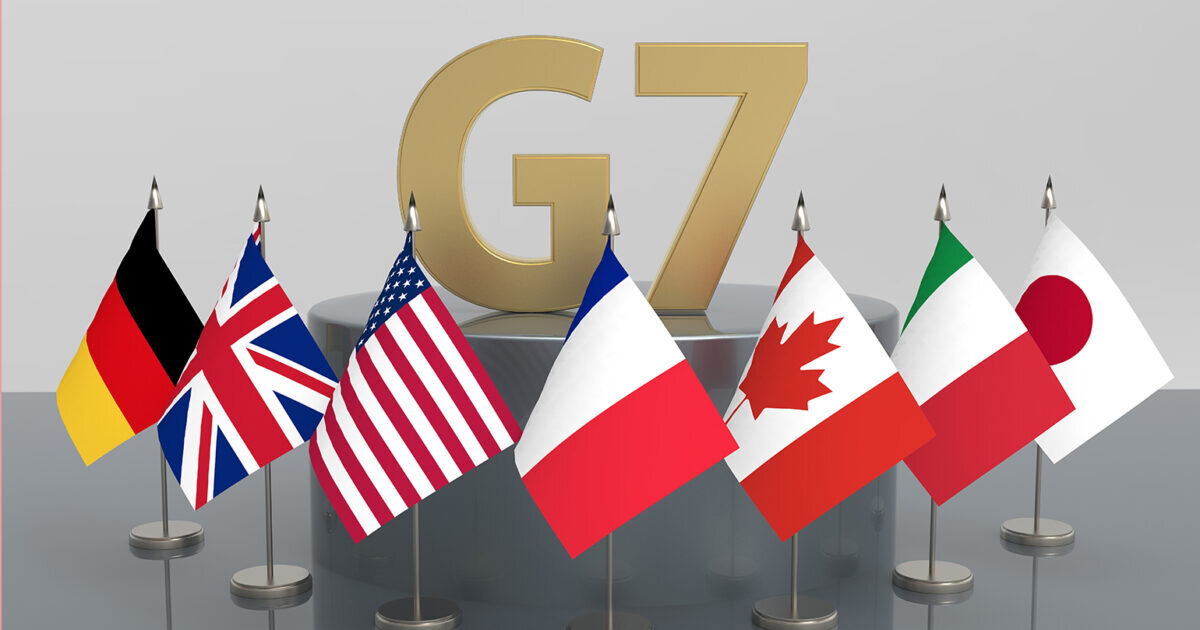Ten things you should know about trade and climate change
Medium Read (8-9 minutes)
At this month’s G7 summit in Cornwall, Boris Johnson wanted to make two things very clear to the world.
The first is that the UK is a world leader in fighting climate change. Although plenty of environmental NGOs think they could have gone further, the G7 committed to net-zero emissions by 2050 and to provide cash to poorer countries worst hit by climate change.
The second is that the UK has agreed a shiny new trade agreement with Australia. It won’t be properly signed for a few months, and its economic benefits are negligible even on the Government's own measures, but it is nonetheless heralded by Johnson as a big achievement for post-Brexit Britain.
Little attention has been paid, however, to whether these two aims of the Government are compatible. Trade rules affect climate change in all sorts of ways, for better or for worse.
We - the Trade Justice Movement - worked with a group of environmental NGOs and experts to come up with ‘10 things you should know about trade and climate change’. These are in some ways 10 problems, but also 10 potential opportunities for making trade work better for the planet.
Sidebar: What is the G7?
Cornwall Council says:
The G7, or Group of Seven, consists of Great Britain, Canada, France, the USA, Italy, Germany and Japan. Each year a member state acts as president and hosts the G7 leaders’ summit between heads of state and representatives of the European Union. This year Great Britain is acting as president, and Carbis Bay was chosen as the location.
In past years the G7 has taken action to combat climate change through the Paris Climate Agreement, prevent tax evasion, strengthen the global economy, and support education initiatives for children in the developing world.
Wikipedia says:
The Group of Seven (G7) is an inter-governmental political forum consisting of Canada, France, Germany, Italy, Japan, the United Kingdom and the United States. Its members are the world's largest IMF-advanced economies and wealthiest liberal democracies; the group is officially organized around shared values of pluralism and representative government.
As of 2018, the G7 accounts for close to 60% of global net wealth ($317 trillion), 32–46% of global gross domestic product (GDP) and for about 770 million people or 10% of the world's population. Most members are great powers in global affairs and maintain mutually close economic, military, and diplomatic relations.
As Christians engaged with politics and concerned about the future of God’s creation, we should take these 10 points seriously.
1. Climate talks won’t mention trade. This needs to change. As the UK hosts COP26 this year, there is an opportunity to put trade on the agenda. By excluding it, we risk ignoring a big stumbling block to action on climate.
2. Trade deals can increase emissions. Trade deals aim to boost trade and this often leads to higher emissions - big emitters like cement or steel industries are just as likely to benefit as green industries like wind power and electric cars.
3. Trade deals can restrict government policy space. From subsidies to regulations, trade deals are often designed in a neoliberal model to restrict government action. This could tie our hands as we try to combat climate change.
4. Companies use trade deals to challenge environmental policies. Through the investor court system, often included in trade deals, corporations can sue governments for policies which harm their profits. In the past, this has been used to challenge a Canadian ban on fracking, water pollution regulations in Germany and rainforest mining permits in South America. The system has no place in a green trade policy.
5. Trade deals encourage high-emission agriculture. Our food systems generate a third of the world’s greenhouse gas emissions. Trade deals can lead to a race to the bottom on standards which benefits large-scale agriculture over sustainable farming (a particular concern with the UK-Australia deal).
6. Trade deals make it difficult to share green tech. Rules on patents make it harder for technology to transfer from rich to poor countries. Given the importance of green technology for fighting climate change, this is an unnecessary hindrance.
7. Trade deals are binding and enforceable, climate deals are not. It is very difficult to enforce sanctions against countries that do not meet their climate targets, whereas trade disputes arise all the time. This means that countries are incentivised to prioritise meeting trade obligations over tackling climate change.
8. If climate change is mentioned in trade deals, it is still not enforceable. Recently new trade deals have mentioned climate change. This is welcome, but the language is often vague and unenforceable - unlike other parts of the deal.
9. The UK has done nothing to ensure its trade deals are compatible with climate ambitions. In its new trade deals, the UK hasn’t shown much ambition on climate change. The Department for International Trade is yet to publish anything saying how they’ll make sure that our new trade deals are compatible with the UK’s climate targets.
10. Change is slow - but there are opportunities on the horizon. Some countries are rethinking trade and climate change. New Zealand, Norway and others are negotiating an Agreement on Climate Change, Trade and Sustainability (ACCTS), which sets a more ambitious tone on climate and trade. The EU is exploring taxes on high-emissions imports at the border. We have written about other things the UK could do in its trade policy if it really wants to be a world leader on climate.
The UK has a once in a lifetime opportunity to reform its trade policy to reflect the enormous challenge of climate change. As we host the G7 and then the COP26 conference in Glasgow in November, we could be signing significant new trade deals. This could be the year.
By starting with these 10 challenges, we could design a trade policy which truly works for people and the planet.







